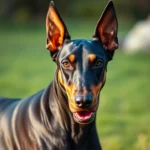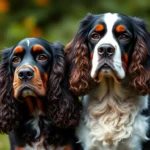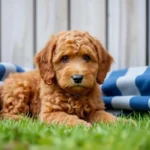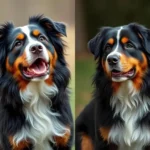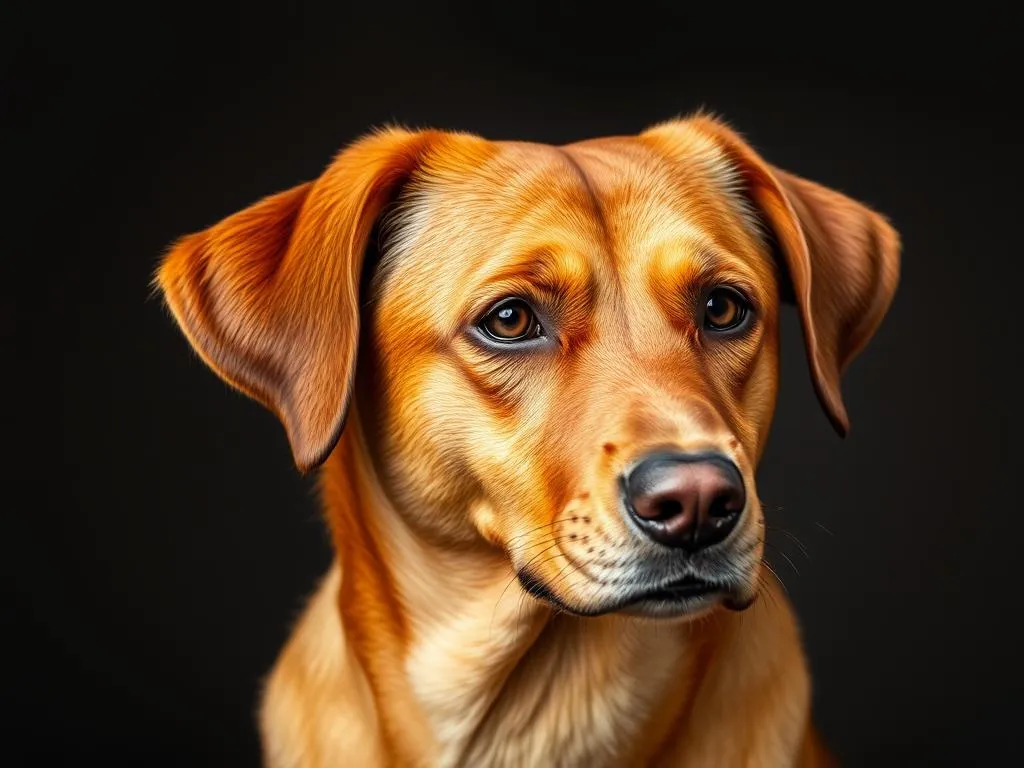
Introduction
The world of dogs is incredibly diverse, with hundreds of breeds each boasting unique traits and characteristics. When considering pet ownership, understanding these breed characteristics is crucial for finding a dog that fits seamlessly into your lifestyle. Among the myriad of dog breeds, brown dog breeds hold a special appeal for many dog lovers. Their rich coat colors can range from deep chocolate to light tan, and each breed offers distinct personalities and health considerations. This article aims to inform and guide readers about various brown dog breeds, helping potential owners choose the right companion.
Understanding Dog Breeds
What Defines a Dog Breed?
A dog breed is primarily defined by its genetic traits, physical characteristics, and behavioral tendencies. These factors influence not only a dog’s appearance but also its temperament and suitability for different lifestyles. For instance, some breeds are known for being gentle and great with children, while others may be more energetic and require an active owner.
The Role of Color in Dog Breeds
Coat color plays a significant role in breed classification and perception. Brown dog breeds are often associated with warmth and friendliness, which can enhance their popularity among potential owners. Additionally, the color can affect the dog’s visibility in certain environments, influencing their suitability for specific activities like hunting or agility competitions.
Popular Brown Dog Breeds
Sporting Breeds
Labrador Retriever
The Labrador Retriever is one of the most popular dog breeds globally, known for its friendly disposition and intelligence. These dogs typically have a short, dense coat that can come in various shades of brown, including chocolate. Labradors are highly trainable, making them excellent family pets and service dogs.
- Temperament: Friendly, outgoing, and eager to please.
- Health Concerns: Prone to obesity, hip dysplasia, and certain eye conditions.
- Care Requirements: Regular exercise is essential to keep them healthy and happy.
Chesapeake Bay Retriever
The Chesapeake Bay Retriever, often referred to as “Chessie,” is a unique sporting breed with a distinctive oily coat that repels water. These dogs are known for their excellent swimming ability and are often used in hunting waterfowl.
- Temperament: Loyal, protective, and intelligent.
- Training Needs: Requires early socialization and consistent training.
- Exercise Requirements: Enjoys activities like swimming and retrieving.
Working Breeds
Rottweiler
The Rottweiler is a robust and powerful breed with a rich history as a working dog. Originally used for herding and guarding, Rottweilers are loyal companions and can be protective of their families.
- Temperament: Confident, fearless, and loyal.
- Socialization: Early socialization is crucial to ensure they are well-adjusted.
- Training Tips: Use positive reinforcement techniques.
Boxer
The Boxer is a playful and energetic breed known for its boundless enthusiasm. With a strong build and a short coat, Boxers are easily recognizable and are known for their affectionate nature.
- Key Traits: Intelligent, playful, and protective.
- Activity Level: Requires regular exercise and mental stimulation.
- Care Specifics: Prone to certain health issues like heart conditions.
Hound Breeds
Bloodhound
The Bloodhound is renowned for its incredible tracking abilities. This breed has a distinctive appearance, with droopy ears and a wrinkled face, and is known for its excellent sense of smell.
- Unique Characteristics: Gentle and affectionate; great with children.
- Grooming Needs: Requires regular brushing to manage shedding.
- Health Considerations: Prone to ear infections; routine vet visits are essential.
Basset Hound
The Basset Hound is another hound breed with a distinctive appearance, characterized by its long ears and droopy eyes. Basset Hounds are known for their laid-back temperament, making them suitable family pets.
- Temperament: Quiet, gentle, and good-natured.
- Exercise Requirements: Moderate exercise needs; enjoy leisurely walks.
- Potential Health Issues: Can suffer from obesity and hip dysplasia.
Toy Breeds
Cocker Spaniel
The Cocker Spaniel is a medium-sized breed that is known for its affectionate nature and beautiful coat. They come in various colors, including brown, and are particularly good in smaller living spaces.
- Temperament: Friendly, playful, and eager to please.
- Grooming Needs: Requires regular grooming and ear cleaning.
- Health Issues: Prone to ear infections and eye problems.
Yorkshire Terrier
The Yorkshire Terrier, often referred to as a “Yorkie,” is a small breed that is both lively and affectionate. They are popular for their charming personalities and manageable size.
- Characteristics: Energetic, bold, and confident.
- Care Tips: Requires regular grooming due to their long, silky coat.
- Training: Early training is important to curb barking tendencies.
Rare and Unique Brown Dog Breeds
Lesser-Known Breeds
Norfolk Terrier
The Norfolk Terrier is a small but sturdy breed known for its friendly demeanor. With a wiry coat that can include shades of brown, they are often overlooked but make excellent companions.
- Care Needs: Requires regular exercise and grooming.
- Unique Characteristics: Great with families and other pets.
American Foxhound
The American Foxhound is a lesser-known breed that was originally bred for hunting. They have a sleek build and a short coat that can be brown among other colors.
- Training Tips: Requires consistent training and socialization.
- Exercise Needs: High energy level; enjoys running and exploring.
Mixed Breeds
Mixed-breed dogs with brown coats can be found in various shelters and rescues. These dogs often combine the best traits of their parent breeds and can make wonderful companions.
- Benefits of Adopting: Mixed breeds can be healthier and often have lower risks of genetic issues.
- Unique Personalities: Each mixed breed has its unique characteristics based on its heritage.
Choosing the Right Brown Dog Breed
Assessing Lifestyle Compatibility
When choosing a dog, consider your lifestyle and how it aligns with the characteristics of brown dog breeds. Factors to evaluate include:
- Activity Level: Some breeds require more exercise than others.
- Space: Consider whether you have enough room for a larger dog.
- Time Commitment: Puppies require more training and socialization than adult dogs.
Adoption vs. Buying
There are pros and cons to both adopting from shelters and buying from breeders.
- Adoption: Often less expensive and helps reduce the number of homeless pets.
- Buying: Can ensure specific breed characteristics but may come with higher costs.
Responsible pet ownership is essential, whether you adopt or purchase a dog. Always ensure that you are ready for the commitment involved in dog ownership.
Caring for Your Brown Dog Breed
Nutrition and Diet
A balanced diet is crucial for maintaining the health and well-being of your dog. Consider the following:
- Dietary Needs: Varies based on breed size and energy level.
- Common Concerns: Be mindful of obesity, especially in breeds prone to weight gain.
Grooming Requirements
Regular grooming is vital for maintaining the health and appearance of your dog. Here are some tips:
- Regular Brushing: Helps manage shedding and keep the coat healthy.
- Bathing: Only as needed to avoid stripping natural oils.
Health Considerations
Each breed has specific health issues to be aware of:
- Routine Check-Ups: Regular veterinary visits can catch potential health issues early.
- Common Issues: Research breed-specific conditions for informed care.
Conclusion
Brown dog breeds are not only beautiful but also come with a variety of personalities and traits that can enhance your life. From loyal companions like the Labrador Retriever to the playful Boxer, there is a brown dog breed to fit every lifestyle. Remember to consider the responsibilities of ownership and choose a breed that aligns with your lifestyle and commitments.
Being a responsible pet owner means understanding your dog’s needs and providing a loving, nurturing environment. With the right care and attention, a brown dog can be a cherished member of your family for years to come.
FAQs
Common Questions About Brown Dog Breeds
-
What are the most common brown dog breeds?
Popular options include the Labrador Retriever, Rottweiler, and Cocker Spaniel. -
Are brown dogs generally healthier than other colors?
Health is more related to breed than color; however, mixed breeds may have lower genetic health issues.
Myths vs. Facts
- Myth: All large brown dogs are aggressive.
-
Fact: Temperament varies greatly by breed and individual personality.
-
Myth: Brown dogs are always mutts.
- Fact: Many purebred dogs have brown coats, including the Boxer and Bloodhound.
By understanding the unique traits and care requirements of brown dog breeds, you can make an informed decision and provide a loving home for your new furry friend.


